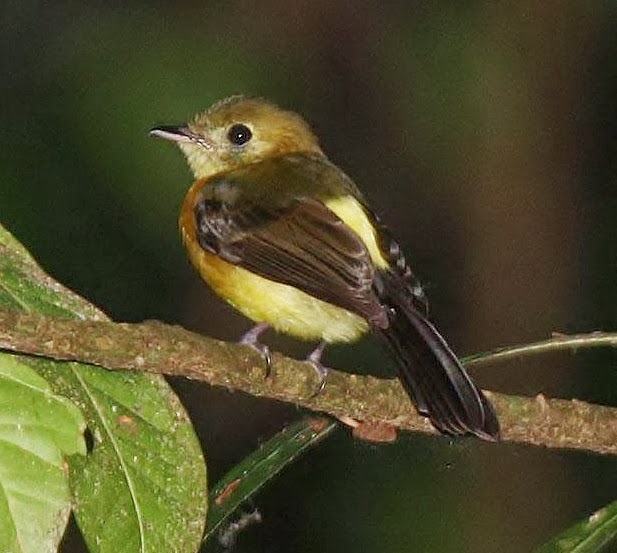 |
| Photo by Chris Perkins(Internet Bird Collection) |
Common name:
sulphur-rumped flycatcher (en); assanhadinho-de-uropígio-amarelo (pt); moucherolle à croupion jaune (fr); moscareta culiamarilla (es); schwefelbürzel-borstentyrann (de)
Taxonomy:
Order Passeriformes
Family Tyrannidae
Range:
This species is found from southern Mexico to western Colombia and Ecuador.
Size:
These birds are 12 cm long and weigh 12 g.
Habitat:
The sulphur-rumped flycatcher is mostly found in the understorey of tropical rainforests, but also in secondary growths and gallery forests. They are present from sea level up to an altitude of 1.200 m.
Diet:
They catch insects on the wing or by sallying out from a perch, mostly taking bees, bugs and flies.
Breeding:
These birds breed in March-June. The female builds the conical-shaped nest alone, using vegetable fibres. The nest is placed in a thin twig 1-10 m above the ground. There she lays 2-4 white or pinkish eggs with brown speckles, which she incubates alone for 22 days. The chicks fledge 22 days after hatching.
Conservation:
IUCN status – LC (Least Concern)
This species has a large breeding range and has a global population estimated at 50.000-500.000 individuals. The population is suspected to be declining in some areas due to deforestation, but it is not considered threatened at prese







